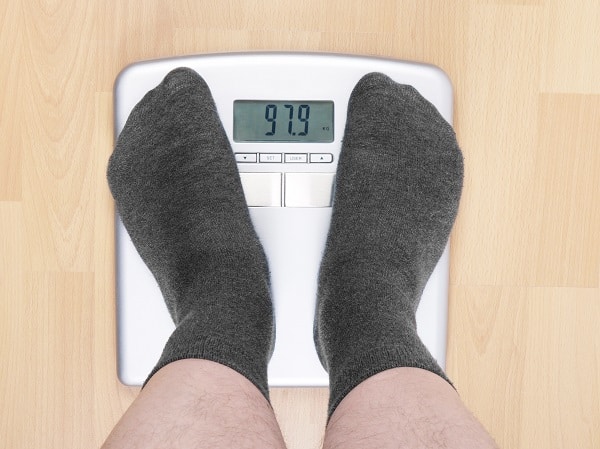As scary as it can be to think about, heart attacks are a very serious condition. And while many people tend to believe that they’re something that only happens to older people, the truth is that anyone can have a heart attack. In fact, people as young as 20 have had heart attacks. So, what can you do to reduce your risk? Well, this article aims to answer that very question. By the end, you’ll understand a bit more about why this condition occurs and what you can do to lower your risk of a heart attack.
Contents
Signs Of A Heart Attack

A heart attack is a medical emergency that occurs when the blood supply to the heart is interrupted. This can happen due to a blockage in the arteries or a rupture in the heart muscle may cause it. Either way, a heart attack can be deadly if not treated immediately. The symptoms of a heart attack vary from person to person, but some common signs can indicate that someone is having a heart attack.
These include chest pain, shortness of breath, nausea, and dizziness. If you or someone you know experiences any of these symptoms, it is vital to seek medical help immediately. Heart attacks are serious business, but they can be survivable with prompt treatment.
Tips To Reduce Your Risk Of A Heart Attack
All of the information above can be pretty scary. But there is some good news, which is that you can do things to lower your risk of having a heart attack. These include:
Quit Smoking

It’s no secret that smoking is bad for your health. In addition to causing lung cancer, smoking also increases your risk of developing a number of other severe health conditions, including heart disease. A heart attack is one of the most common heart conditions caused by smoking. A heart attack occurs when the blood supply to the heart is blocked, usually by a build-up of plaque in the arteries. When this happens, the heart muscle is starved of oxygen and begins to die.
Quitting smoking is one of the best things you can do to reduce your risk of suffering a heart attack. By quitting smoking, you can lower your cholesterol levels, improve your blood pressure and circulation, and reduce the inflammation in your arteries. These changes can all help to reduce your risk of having a heart attack. So if you’re looking to protect your heart, quitting smoking is one of the best things you can do.
Get Exercise Daily

Though you may not feel it, your heart is a muscle. Like any other muscle in your body, it needs exercise to stay strong and healthy. Unfortunately, when you lead a sedentary lifestyle, your heart gets weaker and becomes less efficient at pumping blood throughout your body. This can lead to several health problems, including an increased risk of a heart attack. However, by getting regular exercise, you can keep your heart muscle strong and reduce your risk of having a heart attack.
In addition to improving the strength of your heart, exercise also helps to lower blood pressure and cholesterol levels, both of which are major risk factors for heart disease. So, if you want to keep your heart healthy, make sure to get some exercise every day.
Limit Alcohol Consumption

While many factors contribute to the development of heart disease, one of the most significant is alcohol consumption. Heavy drinking can damage the heart muscle, increase blood pressure, and lead to obesity, increasing the risk of a heart attack. Even moderate drinking can have an impact, as it can raise levels of triglycerides, a type of fat that clogs arteries.
Therefore, limiting alcohol consumption is essential in reducing your risk of a heart attack. If you do drink, the CDC recommends limiting yourself to two drinks per day for men and one drink per day for women. By making this simple change, you can significantly reduce your risk of developing heart disease and having a heart attack.
Reduce Stress

Many people live with a high level of stress on a daily basis. Though some stress is normal and even necessary, chronic stress can affect your physical and emotional health. One of chronic stress’s most serious consequences is an increased heart disease risk. Stress triggers the release of hormones like adrenaline and cortisol, which can raise blood pressure and heart rate. Over time, this can damage the heart and blood vessels, increasing the risk of a heart attack. Additionally, chronic stress can lead to unhealthy lifestyle habits, such as smoking or overeating, which also contribute to heart disease.
Therefore, reducing stress is essential for maintaining a healthy heart. While it may not be possible to eliminate all sources of stress from your life, there are many proven methods for managing stress effectively. Regular exercise, relaxation techniques like yoga or meditation, and spending time with loved ones are great ways to reduce stress and keep your heart healthy.
Avoid Trans Fat

Trans fats are a type of unsaturated fat that is commonly found in processed foods. While trans fats occur naturally in some animal-based products, the majority of trans fats consumed come from industrially-produced oils. Unfortunately, trans fats can have some severe health consequences. Studies have shown that consuming high levels of trans fat increases the risk of heart disease by raising levels of LDL (bad) cholesterol and lowering levels of HDL (good) cholesterol.
In fact, the American Heart Association estimates that avoiding trans fat could prevent up to 100,000 heart attacks each year. So next time you’re at the grocery store, be sure to check the labels for trans fat content and make an effort to limit your intake. Your heart will thank you for it.
Maintain A Healthy Weight

As with most medical conditions, maintaining a healthy lifestyle can go a long way. Eating a nutritious diet, exercising regularly, and avoiding tobacco use are all critical components of heart health. Furthermore, maintaining a healthy weight is also critical for reducing your risk of a heart attack. Obesity is a major risk factor for heart disease, and even carrying excess weight can put a strain on your heart and lead to problems down the road.
By making simple changes to your lifestyle, you can dramatically reduce your risk of developing heart disease and suffering a heart attack. So start today by making some small changes that will significantly impact your long-term health.
Take Steps To Reduce Your Risk Of A Heart Attack!
Many different factors contribute to the risk of a heart attack. However, by making simple lifestyle changes, you can significantly reduce your chances of developing heart disease. Although it is not likely, you will make every one of these changes overnight, even making a few of them can positively impact your health. So start today and take steps to reduce your risk of a heart attack. Your future self will thank you.


